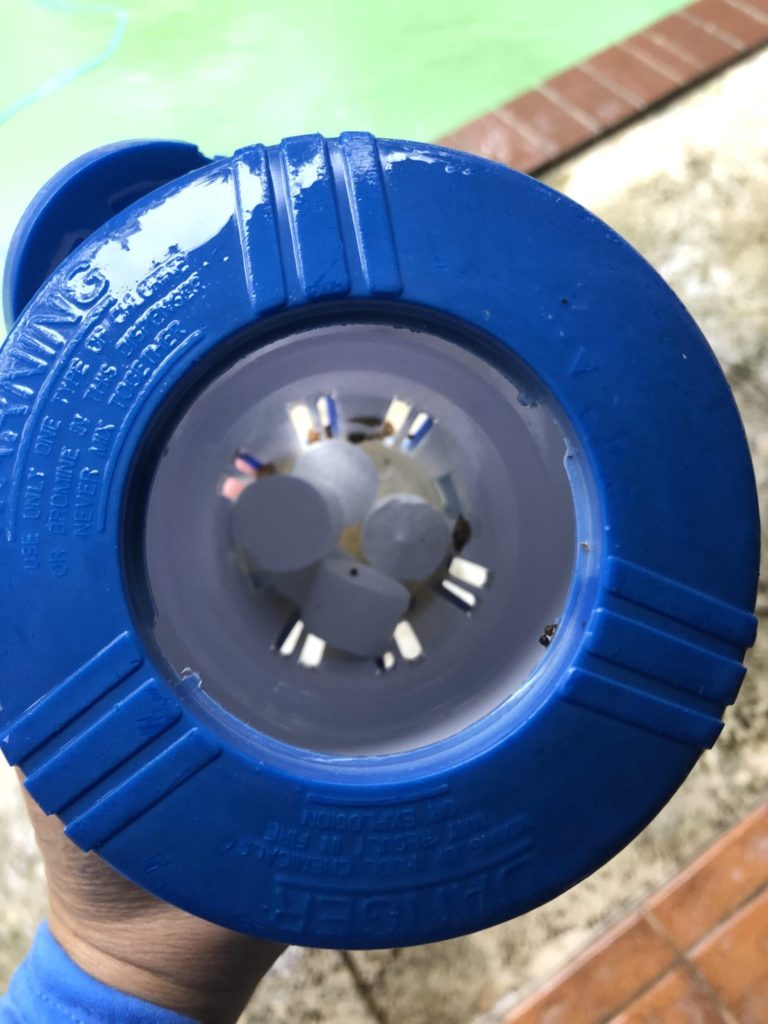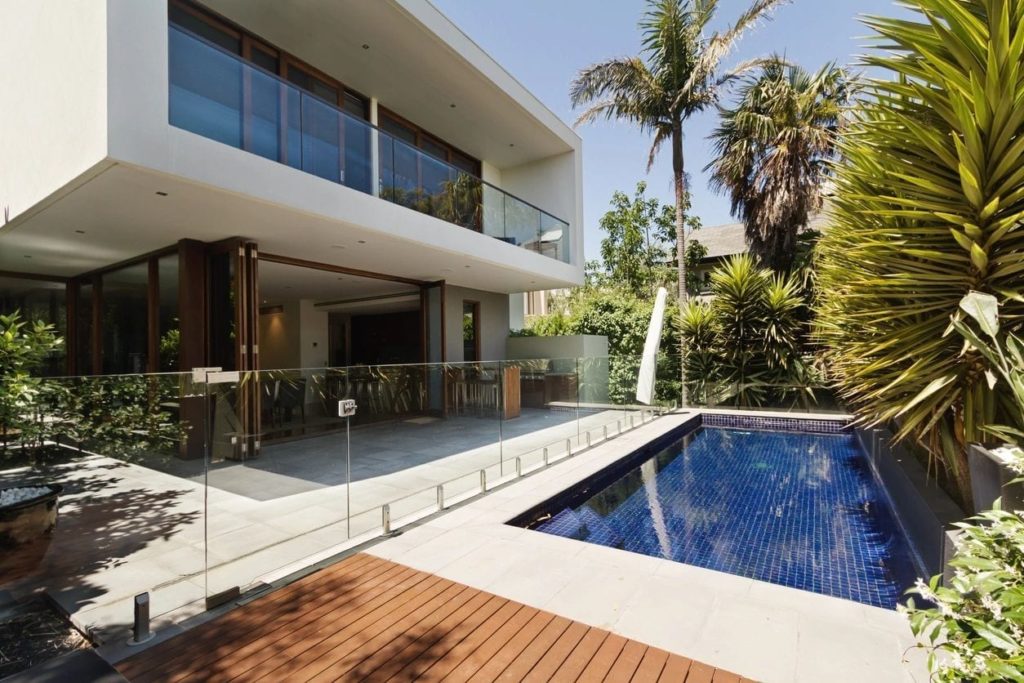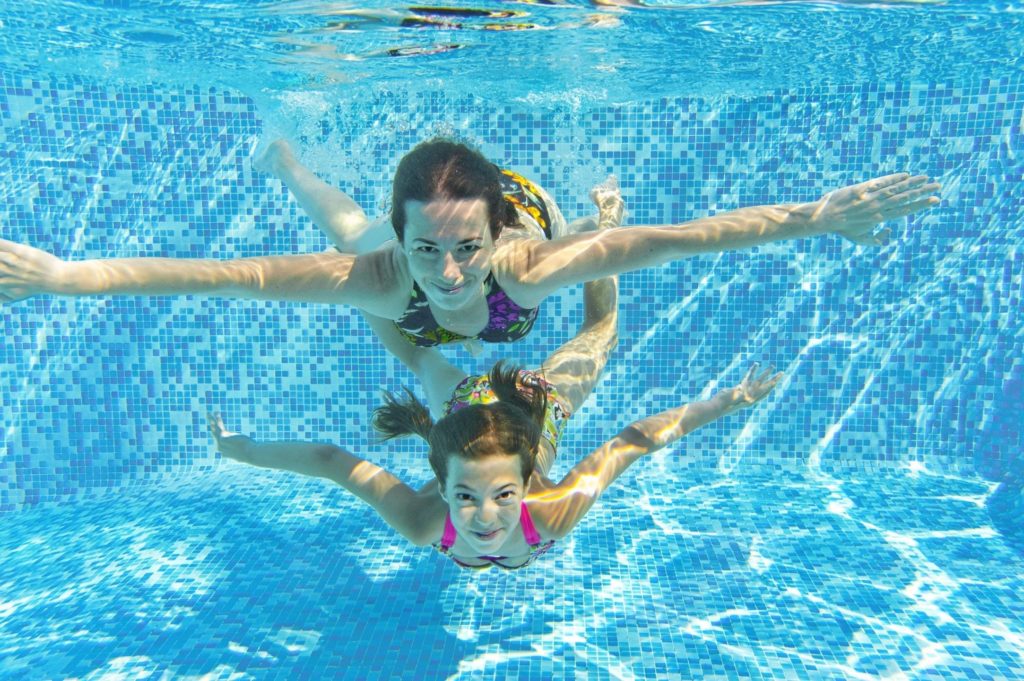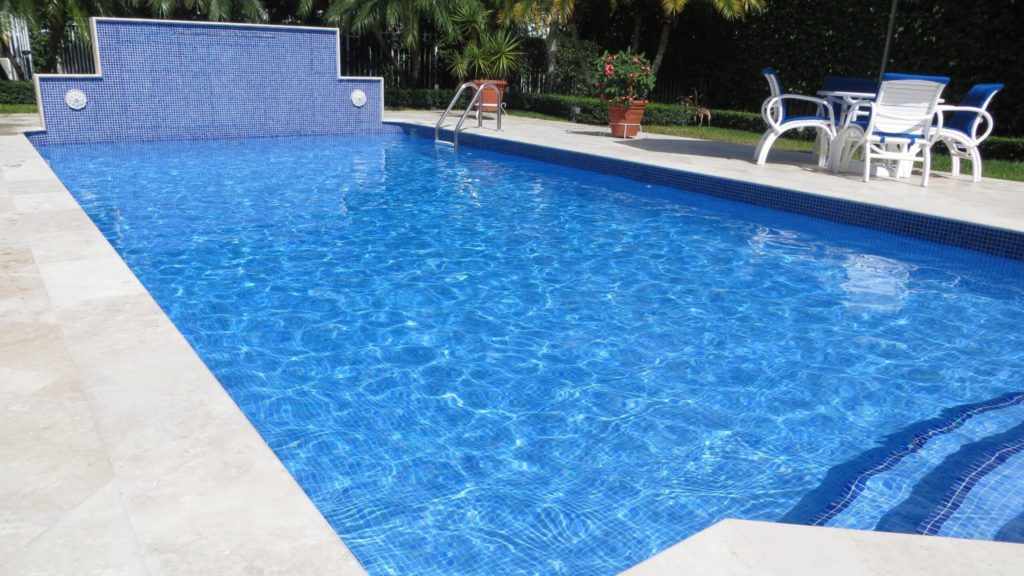So now that the pool season has started and spring is in full swing with all the flowers and leaves falling into your pool, you might be thinking that you want to give extra help to your pool by adding chlorine tablets to your floater. Is this a good idea?
It depends. Most tablets are composed of chlorine and cyanuric acid (CYA), or stabilizer, as it is commonly known. And the interaction between these two chemicals is very important to the proper sanitizing of your pool.
“CYA is needed to protect chlorine from sunlight degradation. It prevents exposure to high levels of chlorine and acts as a buffer to prevent pH from drifting lower (…) Using CYA keeps the chlorine in the water eight times longer than without it. With no CYA the loss of chlorine to sunlight is 75 percent in two hours, so in four hours you have essentially no chlorine”, says Eric Herman, Senior Editor of AQUA Magazine in his article New Thinking: Chlorine/Cyanuric Acid In Balance.
“The downside of CYA use is that while it slows chlorine’s degradation, it also slows chlorine’s oxidation of organics and chlorine’s kill rates of bacteria, viruses and algae”, as stated in the article Chemical Basics: Cyanuric Acid published by Aqua Magazine.
Bottom line: too much CYA means the chlorine in your pool is not going to work as efficiently as it should and you could have an algae bloom. The ideal range is 30 to 50 ppm (parts per million). The concentration should not exceed 100 ppm. CYA does not degrade naturally so the only way to get rid of it is to partially empty and refill the pool with fresh water. You can also increase backwash times or frequency and follow appropriate water replacement intervals.
If you have an indoor pool get the tablets that have no cyanuric acid, as this chemical is only used to protect chlorine from sunlight degradation and is intended for outdoor pools. You can also use chlorine only tablets if you know that the CYA levels on your pool are way above the recommended range of 30 to 50 ppm. Test the water for CYA and you will have the answer.
If you need help getting your pool chemistry in order, you can contact us here for a free estimate for weekly pool cleaning or pool balance.






